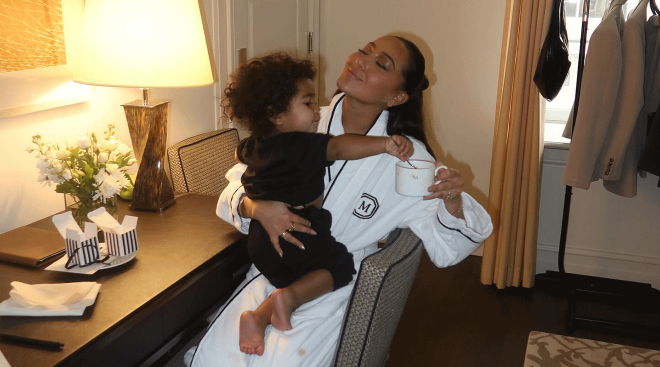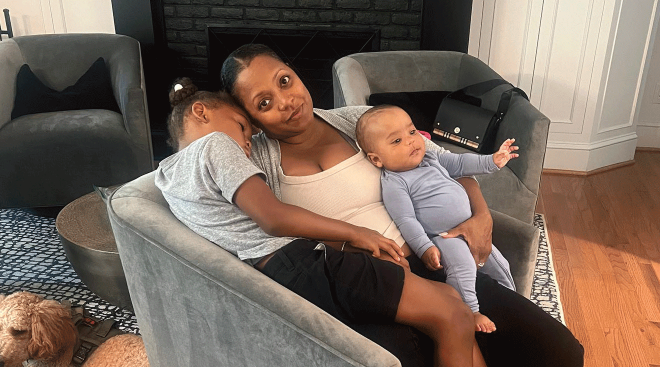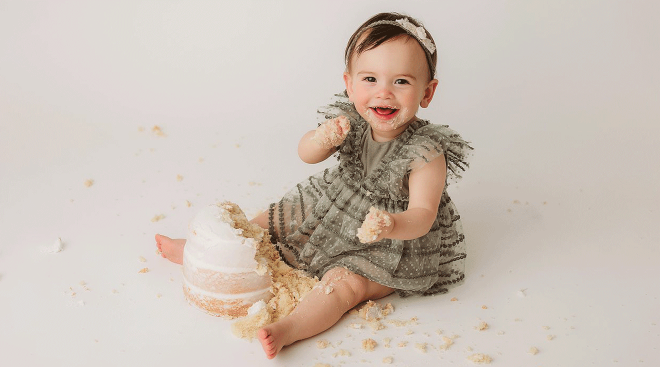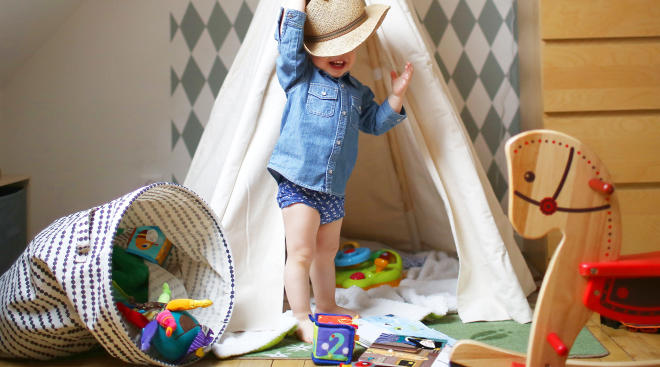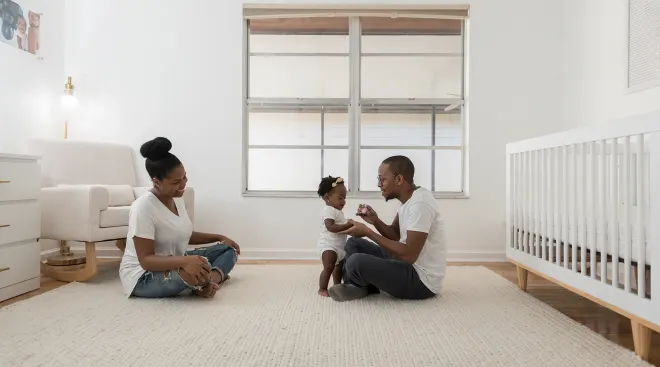Why the Little Moments With Your Kids Matter—And How to Cherish Them
It’s one of the greatest paradoxes of parenting: Research shows that raising small children is associated with psychological stress and marital blahs—but at the same time, it’s also scientifically linked to heightened feelings of exquisite joy and fulfillment in life. So how is this possible? How can such an exasperating, exhausting, often overwhelming job with zero pay offer such spectacular rewards?
The explanation may lie in a burgeoning area of research called “relational savoring” As a 2015 Personal Relationships journal article reports, by taking the time to notice the tender little moments you share with your child and relishing all the little details surrounding it, you enhance your emotional well being and overall life satisfaction. And we really do mean the small, seemingly insignificant habits and experiences that fill your family life. While parents spend inordinate amounts of money, time and energy to capture the big moments—the birthdays, the first days of school, the holidays and annual vacations—the true gems lie in your little one’s fleeting gestures and said-in-passing thoughts.
“My daughter always turns and gives me this cute devilish grin right before she starts crawling away and wants me to chase her. Her giggle following that melts my heart every time.” —Sari D., mom to a 14-month-old
“After reading stories and drinking milk, my son walks to the bathroom to brush his teeth. He is already in his sleep sac so he kind of shuffle walks…it’s the cutest thing.” —Sara N., mom of a 20-month-old
“I love watching my son put on his socks—reminding himself the bump goes on the heel, and then cracking up when it ends up in the wrong place and the labor it takes to right it.” —Judy M., mom of a 5-year old
“We rarely walk anywhere together where she doesn’t automatically grab my hand. I love it so much and I do cherish it because I don’t know how much longer that habit will last.” —Sally W., mom of a 6-year-old
“Just watching my daughter eat is something I never want to forget—watching her little mouth and tiny lips chew is really cute. It’s always exciting when we find a new food she’s into.” —Sarah M., mom of a 13-month-old
Those little instances that light up our day are the stuff of relationships. And part of their value lies from the fact they come in generous bundles. “It’s the multiple moments, not just the few-and-far-between milestones, that build ‘closeness and connection,’” explains Maryam Abdullah, PhD, parenting program director at the University of California, Berkeley’s Greater Good Science Center.
Small moments also serve a practical purpose. “They re-energize us throughout the day, if we pause and let them,” says Daniela Montalto, PhD, a psychologist and clinical assistant professor at the Department of Child and Adolescent Psychiatry at NYU Langone Health in New York City. “They help us continue on with this mission of raising happy, healthy kids.”
The catch? These moments can disappear in the blink of an eye, and not even the fanciest video equipment will fully capture the sight, sound and warmth of them. The best way to enjoy them is to experience it as it happens.
“One moment that has already passed (sigh) is my daughter snoozing on my chest when she was really tiny. She will still fall asleep in my arms sometimes and it’s magic.” —Sarah M.
“When I come home and she’s there already, I always get a big shout of “MOM” and she runs and hugs me. It’s wonderful.” —Loree V., mom of an 8-year-old
“My daughters randomly call out to me “Mama! I love you!” It’s so cute that these are the thoughts that occur to them out of the blue, and they share so freely.” —Victoria V., mom of 7-year-old twins
“When my son started talking, he called police cars P-cars, and he did it for years.” —Claudia B., mom of a now 21-year-old
The most important step in harnessing the power of those little moments with your kids is to simply acknowledge that they exist. As any mom knows, though, that’s harder than you might think.
Case in point: this morning. As usual, I’m in a mad rush to get my 7-year-old, dressed, fed and packed for school. We sprint uphill as my mind races about my list of errands and work deadlines and whether we ran out of milk. I’m exhausted and the day has barely begun. But if I took a breath, I would have noticed the riches of small moments that transpired in that mere hour-long window between wake-up and drop-off: the way he way he drinks his milk, completely oblivious to the milk mustache he always leaves behind; the way he pronounces mittens as “middens;” the way he turns his head back, flashing his million-dollar smile, and waves at me at drop-off (twice today!) before trudging into the school building for good.
“Small moments happen, whether you notice them or not. Children will ask funny things or say something clever,” says Gayle Schrier Smith, MD, a pediatrician in Richmond, Virginia, and an American Academy of Pediatrics spokesperson. If you arm yourself with oodles of these little moments in your head, “the diaper can explode and it’s still not the end of the world,” she says.
To avoid missing them, you have to shed the stuff that keeps you from paying attention, says Smith, a mom of four. Over the years as a doctor, she’s noticed that the families most likely to recognize these moments are those who take care not to overschedule. “That’s why, in my practice, when families welcome a second baby, I always ask, ‘What kind of things will fall out of your lives?’ Unless you create time, you won’t be able to take that extra 20 minutes to go for a walk with your toddler.” (And if you know toddlers—who zigzag instead of walking in a straight line, who literally stop to smell the roses (or dandelions)—it will take at least that long). It might be missing book club or not cooking a meal from scratch seven days a week or skipping storytime at the library. “When you’re not completely maxed out, a level of stress is lifted, and there’s room to notice things,” Smith says.
Sometimes taking a few minutes to reflect on the small moments after the fact can be invaluable—and can help you notice more of them them going forward. “Pick a time during the day to just pause and reflect,” Montalto says. “I know, the moments we have to stop are minimal, but take two minutes to think about the day and what moments were present.” You might even realize, as she points out, “Wow, that sneak hug (that sometimes can feel like a clingy obstacle) actually was sweet.”
“I love her first smile when I go to her crib in the morning, and also her giggles in general and the whole belly laugh (when I’m lucky)—it’s THE BEST!” —Sarah M.
“One of my daughters always gets up and dances when music is on TV, like suddenly the spotlight is on her. I love this confidence and ability to let the spirit move her…quite literally.” —Victoria V.
“My son’s eyes widen up like saucers when he’s floored by some new discovery. As in: ‘Oh my gosh, there are white chocolate chips?’ Or, ‘What?! We’ve never had a girl president before?’” —Amy Y., mom of a 7-year-old
“My daughter calls brights (the car lights) brighters and we just love it. My son, at 9 years old, can’t say ridiculous and still says rudiclus, and it’s super cute.” —Vanessa M., mom of a 5- and 9-year-old
It’s okay—and sometimes even preferable—just to let those little moments be. Make a mental note, let the warmth wash over you, and consider it your fuel. But you can also consciously acknowledge it, which brings on a new array of benefits.
Remarking on the moment outloud can be educational for older kids. For example, by simply saying, “That’s so sweet when you do that,” you’re actually building their self-awareness, Abdullah says—“the awareness that what they do affects another person. It’s a dynamic exchange that builds opportunities for learning compassion, gratitude and empathy.”
But it doesn’t have to be a verbal acknowledgement (because we all know how “embarrassing” mushy stuff can be to an 8-year-old boy). It can be an embrace, a ruffle of the hair or a gentle squeeze of the hand. “All of that counts as an expression of your appreciation of their presence,” Abdullah says. And of course, the more you’re able to model that kind of thinking and intense connection, you’re building your child’s understanding of how they relate to you and how you relate to them. It also teaches them how to interact with others, when they simply want to express to loved ones, “Hey, I’m glad you’re here.”
“One of my girls sets her morning alarm 10 minutes early so she can get up before her twin and crawl into bed with me for 10 minutes of solo cuddle time.” —Victoria V.
“On cloudy days, my son would say, ‘I wish the sun would come out because it gives such warm hugs.’” —Judy M.
“My daughter writes us notes all the time about how great we are and how much she loves us. I save most of them for a rainy day!” —Loree V.
“I cherish the nighttime snuggles with the kids. I lie down with both kids each night, and while I mostly feel pulled to all my nightly chores/duties, I remind myself that the request for cuddles will end soon. (Sigh.)” —Vanessa M.
Beyond savoring the moments as they happen, there’s also value in documenting them. No, it’s not quite the same, but it’s the closest thing to boxing them up and storing them for an eternity. The advantages are twofold: Not only does that album or video become a great tool for reminiscing, it also makes you more aware of forthcoming moments to celebrate. “As you practice documenting these moments, you become vigilant of all the things worthy of savoring,” Abdullah says.
With that in mind, we asked experts and real moms on how to capture those sweet, everyday moments.
• Take a picture or video. But in a smart way. You don’t want the moment to be inauthentic or the child to feel self-conscious. But if the moment is right, snap away. “The more photos you take of your kids, the less self-conscious they’ll become—it becomes integrated into their lives,” says Michelle Sulcov, a New York City-based family photographer. She suggests taking photos in bursts by holding the finger down on the shutter, so you’re bound to capture the right shot. You can also ask your partner to sneak in shots of tender moments between you and your child—or even invite a photographer into your home for a day.
• Keep a journal. Research shows that keeping a gratitude journal is associated with more optimism, higher levels of happiness and even better health. Jotting down the happy moments you shared with your little one day to day is a version of this—even if it’s just one sentence a day. “It helps you become more aware and not take for granted this gift of interaction that’s happened right in front of your eyes,” Abdullah says. You can do this in an actual book (Smith keeps a leather-bound one her grandmother specifically gave her for the purpose of writing down what her children say) or an electronic document.
• Write a letter. “My coworker writes a letter on each child’s birthday—what they did that year, hopes for the next year, the things they enjoy. She hopes to give all the letters to her kids on their 18th birthday. It’s such a cute idea. I might need to start this!” says Lora P., mom to a 21-month-old.
• Take advantage of digital tools and apps. Sarah M. uses Instagram. “We have a hashtag to document her life one day at a time,” she says. Don’t love the idea of posting on social media? Sara N. uses the Qeepsake app, which texts you a question about your little one every day (“What is one tiny detail about your child that you love?”). You simply text back and the app turns your texts into entries for your child’s digital journal. If you have older kids, Smith suggests trying Cozi, an online family organizer and app that also includes a family journal feature.
• Follow your child’s lead. “See if she felt that the moment was wonderful too and how she’d like to remember and save it,” Montalto suggests. She might want to draw a picture of it (“Me taking a bubble bath!”) or craft a storybook (“The Time I Built A Fort with Daddy Out of Pillows”). The bonus? Doing the activity together is an experience brimming with brand-new small moments to savor.
Published January 2018
Navigate forward to interact with the calendar and select a date. Press the question mark key to get the keyboard shortcuts for changing dates.











































